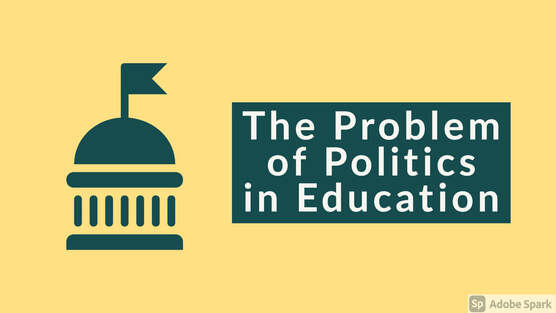|
Politics are back meddling in what goes on in the classroom. You see it from how politicians address funding in the pandemic to teaching civil rights movements in schools. Some of it can be positive, but shifting education thinking and ideals based on political headwinds can also be hazardous. It weakens the academic product.
The American education system has always had the problem of being intertwined in political conversations, but there may not be an excellent way to break away from it. With schools publicly funded, they have to do what members of Congress and other government entities require to get those funds. Sometimes that could be as easy as showing some sort of struggle (like in the pandemic). Other times, it could be meeting some tough to reach goal. Whatever it may be, it brings a new level of scrutiny to a group of people who should be focusing on students first. Schools are supposed to be funded almost wholly through property taxes, but that funding system is broken. Many areas of the country have changed their tax laws to a point where the funding levels just aren’t there, and other schools reside in areas where the property values are so low that they never will be. You have also seen school budgets ballon for various reasons to keep up with the demands and needs of students. There just isn’t enough natural funding flowing in, and it means that politicians can set arbitrary requirements to get what’s needed to supplement. You are seeing this play out right now with theories focused on race and civil rights movements. Political thought tends to focus on making students patriots and believing that the United States is the most excellent place globally. While at a younger level, that’s incredibly valid, as students get older, it misses the point of what studying history should be. The history of the country is messy. The US is not perfect. People have been oppressed throughout US history, but what makes the US great is adapting and overcoming. Things still aren’t perfect, but I think we will continue that adaptation and overcoming. The thing about it is, though, if we don’t study past mistakes, how can we? It’s not to say there aren’t extreme cases of theory and thought that have edged their way into schools. There is a thin line there. Politically though, we live in a time of absolutes. With politics involved, we will severely limit the lessons we can learn from the different perspectives that come from historical theories. We will limit the way we adapt and overcome. To limit radical ideas in schools, I think there are better ways we can approach things. The first thing is that we have to teach theory as theory, and we need to limit the age range it goes to. There is nothing wrong with teaching theories and different perspectives to students that can think critically. They get to see a different perspective on the world, and they can decide with some academic skill how much of that theory applies to both themselves and their views of others. We also need to have academics set content rather than politicians and have politicians be ok with that. Yes, academics will disagree, but they are much less likely to change content requirements than politicians. We can’t bounce what kids learn based on who is in power. The only way any of this will take is to change the way we do school boards. More often than not, these are members of the community who have had no experience in schools. They are, at their nature, junior or failed politicians. They should have to have experience in education. With that, they could have a unified voice to oppose extreme education bills in state legislatures and the US Congress, and for goodness sake, they for sure do not be aligned with any political party.
0 Comments
Leave a Reply. |
Archives
January 2023
Categories |

 RSS Feed
RSS Feed
